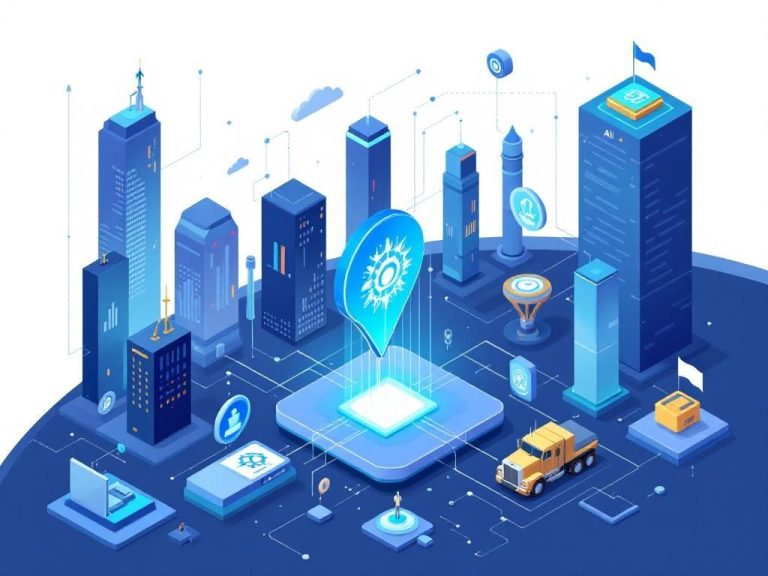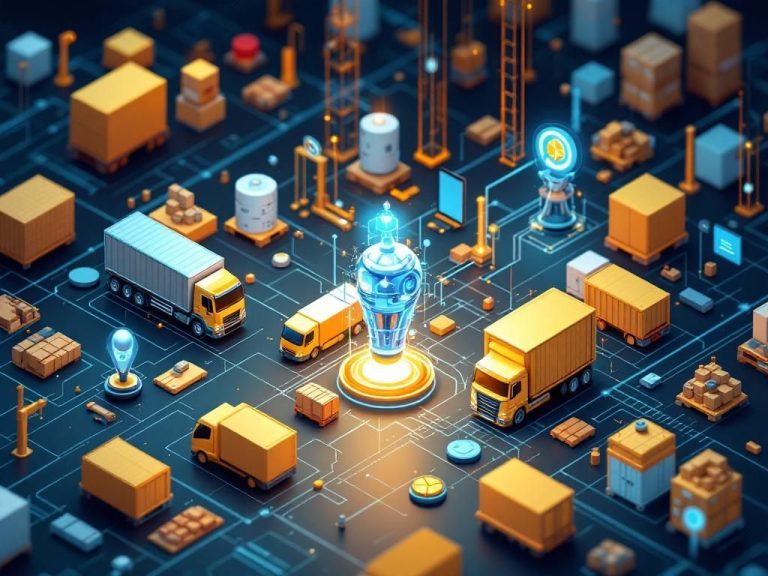In today’s fast-paced business environment, supply chain management has become increasingly complex. Companies are constantly seeking ways to enhance efficiency, reduce costs, and improve customer satisfaction. The integration of Artificial Intelligence (AI) into supply chain operations presents a transformative opportunity to achieve these goals. This article explores how AI optimization can revolutionize supply chains, outlining its key benefits, applications, and challenges.
Understanding AI in Supply Chain Optimization
AI refers to the simulation of human intelligence processes by machines, particularly computer systems. In the context of supply chains, AI encompasses various technologies, including machine learning, natural language processing, and robotics. These technologies can analyze vast amounts of data, recognize patterns, and make decisions with minimal human intervention.
Key Components of AI in Supply Chains
- Machine Learning: Algorithms that improve automatically through experience and data.
- Predictive Analytics: Techniques that use statistical algorithms and machine learning to identify the likelihood of future outcomes based on historical data.
- Robotics Process Automation (RPA): Automates repetitive tasks to improve efficiency and reduce errors.
- Natural Language Processing (NLP): Enables machines to understand and interpret human language for better communication.
The Benefits of AI Optimization
Implementing AI in supply chains can deliver a multitude of benefits:
1. Enhanced Forecasting Accuracy
AI algorithms can analyze historical data to identify trends and provide accurate demand forecasts, leading to better inventory management.
2. Improved Efficiency
AI can automate routine tasks, streamline operations, and reduce the time required for supply chain processes, resulting in significant cost savings.
3. Better Decision-Making
With access to real-time data and advanced analytics, managers can make informed decisions quickly, responding proactively to market changes.
4. Increased Customer Satisfaction
By optimizing delivery times and ensuring product availability, companies can enhance the customer experience and loyalty.
Applications of AI Optimization in Supply Chains
AI has a broad range of applications within supply chain management, which can be grouped into several key areas:
1. Demand Forecasting
AI can analyze past sales data, market trends, and external factors (like economic indicators) to predict future demand. This helps companies maintain optimal inventory levels.
2. Inventory Management
AI technologies can monitor stock levels in real-time, automatically reordering supplies based on demand forecasts and minimizing excess inventory.
3. Supplier Selection and Management
With AI, companies can evaluate suppliers based on performance metrics, risk factors, and compliance, leading to better supplier relationships.
4. Logistics Optimization
AI algorithms can optimize delivery routes, manage freight and shipping logistics, and reduce transportation costs.
5. Risk Management
AI can identify potential risks in the supply chain, enabling businesses to develop strategies to mitigate disruptions caused by natural disasters, political instability, or supplier failures.
Challenges of Implementing AI in Supply Chains
While the benefits of AI optimization are significant, there are challenges that businesses must overcome:
1. Data Quality and Availability
AI systems require high-quality data for accurate analysis. Companies need to ensure that their data is clean, consistent, and readily available.
2. Integration with Existing Systems
Integrating AI with legacy systems can be complicated and resource-intensive, requiring careful planning and execution.
3. Change Management
Employees may resist new technologies; thus, effective change management strategies are essential to facilitate a smooth transition.
4. Cost of Implementation
The initial investment in AI technologies can be significant, which may deter some companies from adopting these solutions.
Case Studies: Successful AI Implementation
Several companies have successfully implemented AI in their supply chains:
1. Amazon
Amazon uses AI for demand forecasting, inventory management, and logistics optimization. Their advanced algorithms enhance customer satisfaction by ensuring timely deliveries.
2. Unilever
Unilever employs AI for real-time supply chain visibility and demand planning, enabling them to make data-driven decisions that improve operational efficiency.
3. DHL
DHL has integrated AI in their logistics operations, using predictive analytics to manage and optimize their supply chain effectively.
Future Trends in AI Supply Chain Optimization
The future of AI in supply chain optimization looks promising, with emerging trends including:
1. Increased Use of Robotics
The adoption of robotics in warehouses and manufacturing processes will enhance efficiency and reduce labor costs.
2. Blockchain Integration
Combining AI with blockchain technology will enhance transparency and traceability in supply chains, fostering trust among stakeholders.
3. Advanced Predictive Analytics
As AI technology continues to evolve, predictive tools will become more sophisticated, enabling companies to forecast demand with even greater accuracy.
Conclusion
The integration of AI into supply chain operations presents a remarkable opportunity for businesses to optimize their processes, enhance efficiency, and improve customer satisfaction. While challenges remain, the potential benefits far outweigh the hurdles. Companies that embrace AI optimization will not only stay ahead of the competition but also drive innovation and growth within their sectors. As the technology continues to evolve, businesses must remain agile and adaptable, ready to leverage the capabilities of AI to transform their supply chains.
FAQ
What is AI optimization in supply chain management?
AI optimization in supply chain management refers to the use of artificial intelligence technologies to enhance the efficiency, accuracy, and overall performance of supply chain operations.
How can AI improve supply chain efficiency?
AI can improve supply chain efficiency by analyzing large datasets, predicting demand, optimizing inventory levels, and automating routine tasks, leading to reduced costs and improved service levels.
What are the benefits of using AI in supply chain optimization?
Benefits of using AI in supply chain optimization include enhanced decision-making, real-time visibility, reduced operational costs, improved customer satisfaction, and increased agility in responding to market changes.
Is AI optimization suitable for all types of supply chains?
Yes, AI optimization can be tailored to suit various types of supply chains, regardless of industry, size, or complexity, making it a versatile solution.
What technologies are involved in AI supply chain optimization?
Technologies involved in AI supply chain optimization include machine learning, predictive analytics, natural language processing, and robotic process automation.
How do I start implementing AI optimization in my supply chain?
To start implementing AI optimization, assess your current supply chain processes, identify areas for improvement, invest in the right technology, and consider partnering with AI experts or consultants.




